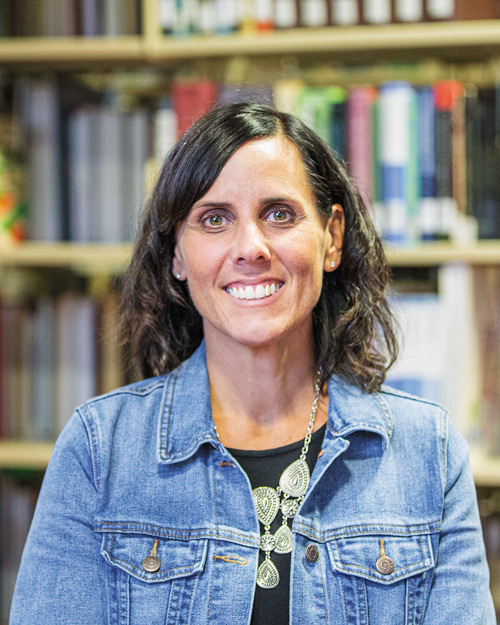MOT students provide help to shelter in pandemic

Last fall, Master of Occupational Therapy (MOT) students offered health and wellness services as part of their required fieldwork to the YWCA Greater Harrisburg, which provides emergency shelter and many forms of housing for women in need.
“They’re learning about what an occupational therapist does from a practical standpoint,” explained Carrie Gorman, assistant professor of occupational therapy at Messiah University.
The students, accompanied by Gorman, assessed the needs of the women living in the facility and then developed programs such as healthy eating, exercise and mindfulness.
“Working at the YWCA was the first time I truly got to put my own group interventions into practice, and it was awesome and encouraging to hear how the women we worked with loved what we had to offer,” said Haley Maraday, MOT ’21. “We did a variety of things from planting to self-care to a dance class.”
The group remained very cognizant of the sustainability of the services they offered. They didn’t want to rush in, help for a moment and then leave. The goal was to provide lasting, meaningful programming.
“We leave all of our supplies, resources and training materials, empowering those that work there and the women who live there,” said Gorman.
Practicality is also key. For example, how does one plant a garden while living in temporary housing?
“One week, we planted herbs to emphasize the importance of leisure activities while tying it into healthy eating,” said Jayme Kerrigan, MOT ’21. “We gave the leftover bag of soil to one of the women, and she was so grateful. She said that she has been wanting to plant in her room but didn’t have the resources for it.”
Following COVID-19 mask, temperature checks and social-distancing protocols for the YWCA, the group quickly found out how important their visits were to the women living there. Messiah’s group was the first one to visit the facility in six months.
“One difficulty we ran into was having to make sure each activity that we planned was going to be safe and follow COVID guidelines. For example, each week we wanted to provide snacks and water to the women but had to make sure that they ate them when they got back to the room and not while with us,” said Kerrigan. “We also had to determine how to keep our healthy eating week engaging, but safe for the women who attended that week. Overall, we still had a successful program despite the challenges that we faced.”
The students say working with the homeless population gave them a new appreciation for how important OT skills are in this community.
“These women were incredible and taught me so much,” said Maraday. “Many of them have been through a lot, so to just walk alongside them and listen to their stories was eye-opening for me.”
They also learned that women from all walks of life, all socioeconomic backgrounds and all levels of education become homeless for a variety of reasons.
“The biggest thing I learned from this experience was that you never know what someone is going through or how they got to the point of being at the YWCA. We met amazing women, and many of them came from a background of education and good jobs, which isn’t what many people would think,” said Kerrigan. “It was important for us to understand this to form connections with these women that meant a lot to me and the other students in my group.”
Many occupational therapy programs don’t offer this type of fieldwork--a specific opportunity to give back to the community—and Gorman says this is what drew her to working at Messiah.
“This class aligns well with Messiah’s mission and vision. It’s the epitome of what Messiah and MOT are about: outward-facing, service-oriented and long-term impact.”
— Anna Seip